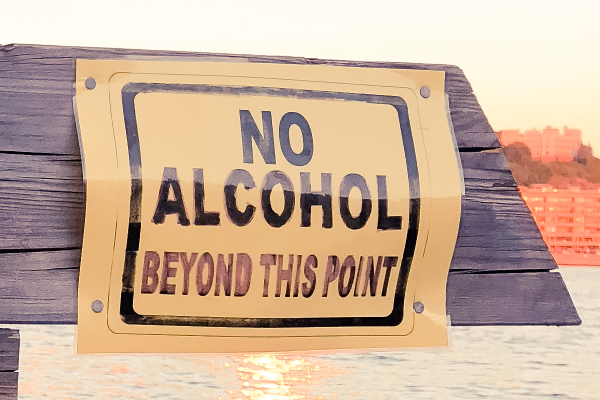April is Alcohol Awareness Month! Starting with self-awareness can always help, especially as habits evolve throughout the pandemic.
This year, Alcohol Awareness Month comes after over a year since the Covid-19 pandemic began. Alcohol consumption has been increasing in the United States, particularly among women, as reported here by ABC News. There’s also been a sharp rise in alcoholic liver disease among young women, as reported here by NPR.
Self-Awareness
As so many of us are changing our habits, more of us will ponder the question of whether or not any given habit amounts to a “problem”. Generally, the question is an answer itself — whatever outside label might fit your habit, following the “sober curious” path can often help us improve our lives. Find more on the concept of sober curiosity — and why one might benefit from it — in this book review of Sober Curious: The Blissful Sleep, Greater Focus, Limitless Presence, and Deep Connection Awaiting Us All on the Other Side of Alcohol.
Our self-care habits require self-awareness of our own emotions and needs, which are easy to ignore unintentionally as a busy lawyer. In a podcast episode of the ABA’s Voices of Recovery, a lawyer named Danny shares a starting tool he learned in recovery called “HALT”, which encourages us to pause when we feel any negative mood to recognize whether we’re Hungry, Angry, Lonely, or Tired. Mindfulness-based stress reduction teaches the STOP method, guiding us through the following steps when we recognize feelings of stress: Stop, Take a breath, Observe your physical and emotional feelings, and then Proceed. Find more here on why self-care is critical particularly to avoid burnout in demanding professions like ours.
Connecting to Community
Our self-awareness extends to our relationships, both who we spend time with and how we relate to them. As we change our habits, it can help to find support with others who have the habits we aspire to. (Find more on changing or building new habits here.) Changing habits around drinking involves other habits, e.g. alternative tools to cope, which can feel uncomfortable (a big part of Sober Curious mentioned above). Finding peer support for addiction recovery in particular can help, also discussed in the podcast mentioned above, to help us stay accountable as we commit to the often difficult but necessary work. Find our listing of Free & Confidential peer recovery meetings exclusively for the Massachusetts legal profession here.
Many of us who have relied on alcohol to cope describe a particular awareness of ‘otherness’. And feelings of isolation are exceptionally common in the legal profession. Find tips to identify support here, and remember that licensed therapists can help — and legal professionals in Massachusetts can schedule a Free & Confidential consultation with one of our licensed therapists.
Whether packaged as steps or not, the work of recovery often helps us build or repair relationships. A couple skills in particular we can hone for repairing and building healthy relationships are: Setting boundaries and Active listening.
Reading can be a great first step when building community feels overwhelming, and it can help to continue keeping steps small from there. Struggling to find diversity and inclusion in recovery spaces can add to the overwhelm for members of oppressed groups. Find recovery coach Shari Hampton’s book recommendations and comments on healing racism in recovery here. Also, it can help to remember that your quality of connections matters infinitely more than the quantity of connections.
Free MBA Program on May 4
Addressing Addiction, Stigma, and Recovery in the Legal Community — Hosted by the Massachusetts Bar Association as part of Well-Being Week in Law (Tuesday, May 4 at 5pm).
For Legal Employers
Related:
Americans Are Drinking More During the Pandemic. Here’s How to Cut Back. (NPR, 2020)
Free Sobriety Support Series May 4 – June 3 (Tempest)
What to Do When You’re Concerned for a Lawyer or Law Student (LCL MA Blog)
Free & Confidential Consultations:
Lawyers, law students, and judges in Massachusetts can discuss concerns with a licensed therapist, law practice advisor, or both. Find more on scheduling here.




